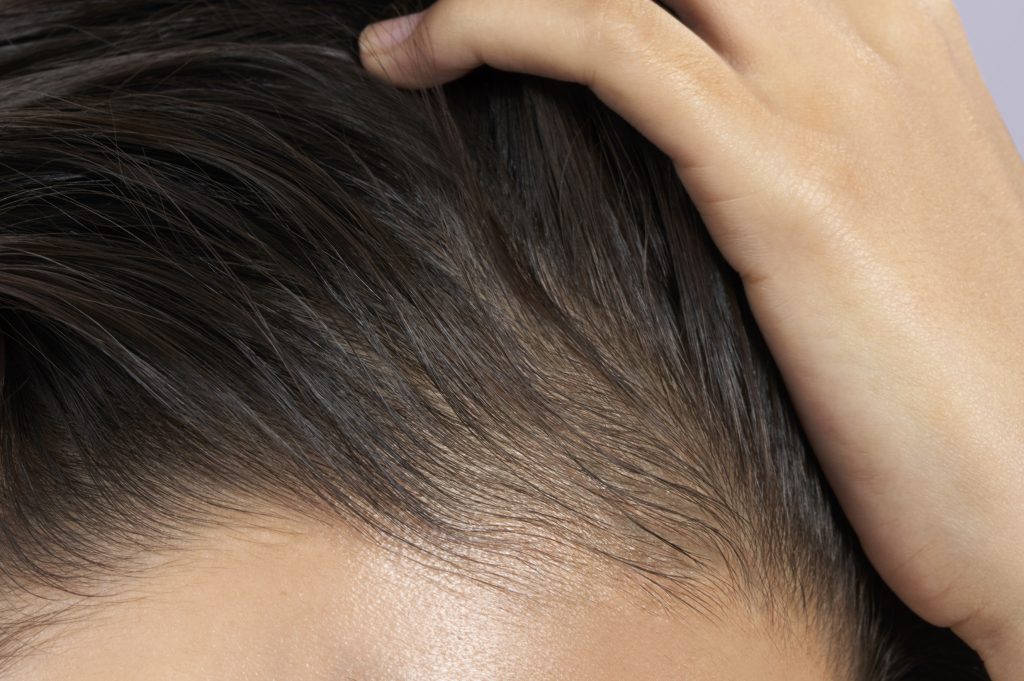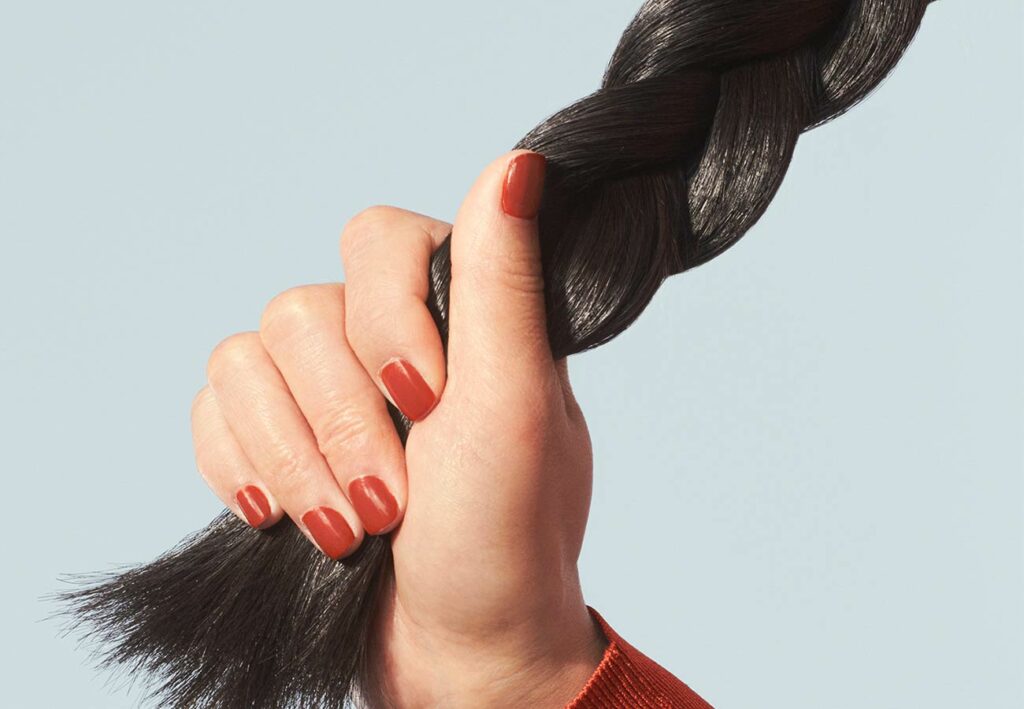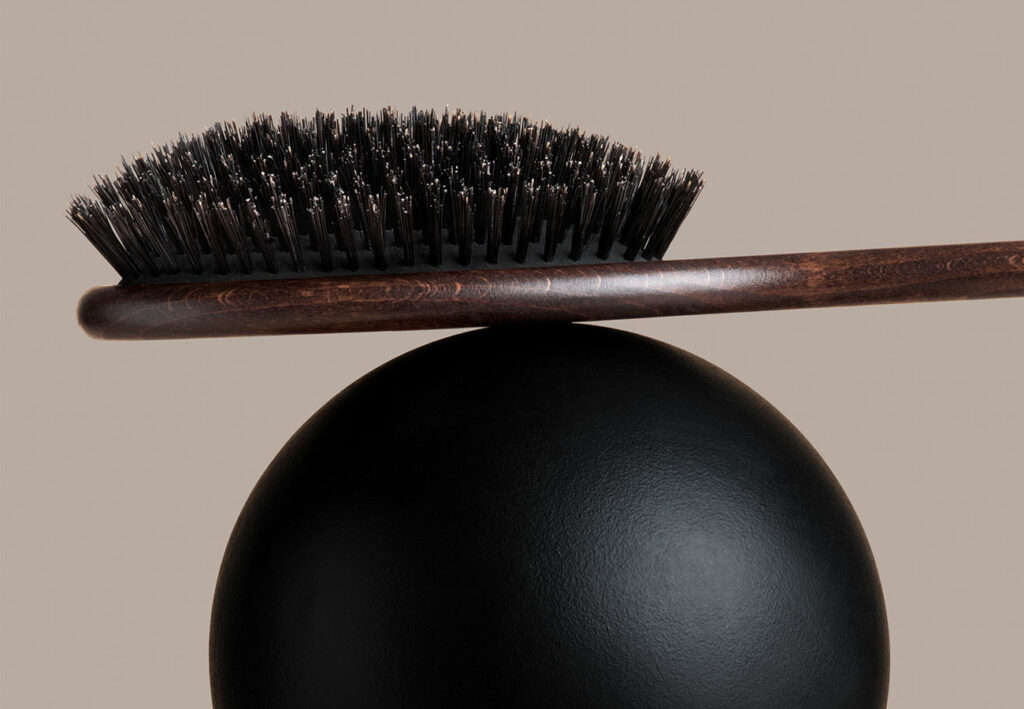My hair is dry and brittle in winter. How do I add moisture back in?
Why it happens:
All that dry air (cold outside, hot inside) literally leeches moisture from your strands, leaving them chronically parched. Not only that, cranking up the heat of the water in the shower and using shampoos, masks, and other hair treatments for damaged hair that may contain sulfates and other harsh ingredients can strip moisture and lead to hair brittleness and breakage.
Expert tips:
First, check the labels of your hair care products. “It’s important to use products that are hydrating and moisturizing, but to also avoid sulfates and other harsh detergents that will strip the natural oils from the hair and leave it too dry,” says Dr. Hadley King, a board-certified dermatologist. Two big things to look for when choosing a shampoo, conditioner, hair mask, or hair oil are sulfate- and paraben-free labels. It’s also a good idea to avoid hair styling products that contain alcohol.
“Stretching time between washes is another smart, easy way to maintain optimal moisture levels in the wintertime,” says Nina Dimachki, a stylist in Northville, Michigan. This allows the natural oils in your hair and scalp to keep hair hydrated. Everyone’s wash frequency is different, but in general, thick and coarse hair types can go a week or more between washes while fine and thin hair types may go to two to three days without washing, according to Dimachki. If you’re a daily gym-goer and you don’t want to wash your hair after every workout, use a clean-ingredient dry shampoo to refresh the roots without causing buildup or scalp issues. And when you do wash, turn the water temperature down to lukewarm as you rinse your hair to keep moisture intact.
How do I combat a dry, itchy scalp during winter?
Why it happens:
Just like the skin on the rest of your body, your scalp is susceptible to dryness from cold weather and low humidity. According to the American Academy of Dermatology (AAD), a dry winter scalp can lead to itchiness and flaking that can even be painful. Unlike skin elsewhere on the body, finding scalp relief by slathering on a rich cream isn’t very practical.
Expert tips:
Shampoo less often (as we advised above). Why? Allowing more natural oil to stay put on your scalp will keep the skin there better buffered from the cold winter air that causes moisture loss and irritation. If you find it difficult to leave a couple days between washes, try this tip from scalp healer Ritsuko Borges, of Masa Kanai salon in New York City: Rather than shampooing, rinse hair with lukewarm water and condition the mid-shafts and ends. This way you get that clean hair feeling and detangling without drying out your scalp. This tip is especially great if you work out or sweat every day and don’t want to overwash.
Using a scalp mask once a week (or twice a week if your skin is very irritated) is also an effective way to soothe and hydrate. Prose scalp mask formulas typically utilize a combination of pro-vitamin B5 and cannabidiol (aka CBD), which helps soothe and curb dryness-related flaking.
Pro Tip: To make the most of your scalp mask, always shampoo after applying and give your scalp a thorough kneading with your fingertips. This will manually loosen any dead skin cell buildup and enable the therapeutic ingredients in your treatment to really penetrate.
How do I tame winter hair static and flyaways?
Why it happens:
Exposure to dry, chilly air can create an electrical charge in your hair, causing it to defy gravity and float around your head.
Expert tips:
Hairstylist and licensed trichologist Janet Waddell recommends using moisturizing shampoos and conditioners as a first step to reducing static, since hydrated hair is heavier and less vulnerable to lift-off. Some pros also say using a metal comb, as opposed to a brush with natural or plastic bristles, can keep static at bay. You can also ward off static when drying wet hair. Says Wadell, “When styling hair, be sure to add heat styling protection before blow-drying or leave hair to dry naturally with a leave-in conditioner and then style gently with a wand or iron once dry.” To fix static on the go, squirt a tiny drop of hand or face lotion on your palm, rub your hands together, and carefully pat down static-y strands—avoiding your roots. You can also run a frizz-fighting hair care sheet over your hair’s top layer or use a spritz of hairspray to reduce static flyaways.
What’s the best way to prevent and safely detangle knots?
Why it happens:
Scarves, turtlenecks, or coats that zip up to the chin may be cozy and warm—but they can also be problematic for your hair. Anything with a high neck comes in constant contact with hair that’s longer than chin-length and that friction, over time, can cause those strands to become matted and knotty.
Expert tips:
For prevention, simple solutions include opting for an updo (a ponytail, braid, or low bun) when you’re wearing something around your neck. If your winter coat is the main culprit, try tucking hair safely inside a hat while you commute. To detangle knots without losing any precious strands, Wadell says, “Start at the ends of the hair and work up in small sections using a wide tooth comb. When possible, use a moisturizing product like a leave-in conditioner to minimize breakage and help the comb glide through hair with ease.”
By following these tips and switching up your hair care routine to include hair treatments for damaged hair, such as hydrating and smoothing curl creams, hair oils, and scalp masks, you’ll have nothing but good hair days ahead all winter long.





